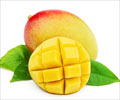Discover how incorporating mangoes into the diet of women of childbearing age significantly enhances nutrient intake and overall diet quality.
- Mangoes are an excellent nutrient addition to women of childbearing age
- Mangoes are rich in vitamins, minerals, and fiber; low in sugars and saturated fats
- Dietary intake of mangoes helps prevent pregnancy-related complications like gestational diabetes and hypertension
Mango Consumption Was Associated with Higher Nutrient Intake and Diet Quality in Women of Childbearing Age and Older Adults
Go to source). The study delves into the potential benefits of mango consumption on overall diet quality and the intake of essential nutrients crucial for a healthy pregnancy.
Mango Consumption and Improved Nutritional Outcomes in Women
The research involved 16,744 women aged 15-44 years participating in the National Health and Nutrition Examination Survey (NHANES) from 1988-1994 and 1999-2018. The study utilized the Healthy Eating Index (HEI) as a validated measure of diet quality, assessing adherence to recommendations from the 2020 Dietary Guidelines for Americans (DGA).The investigation also considered nutrient intake differences between mango consumers and non-consumers, using two 24-hour dietary recalls.
Compared to diets without mangoes, HEI scores were 16% higher among WCA who included mangoes in their diet. This suggests that mango consumption is associated with a more healthful and well-rounded diet.
Did You Know?
The Dietary Guidelines for Americans (2020-2025) advocate for adults aged 19 to 59 to incorporate 1.5 to 2.5 cups of fruit into their daily diet. mangoes, known for their versatility and year-round availability, serve as a delightful addition to a well-balanced diet, contributing to meeting the recommended fruit consumption.
Nutrient Intake Differences
Mango consumers exhibited significantly higher consumption of beneficial nutrients and lower intake of undesirable ones. Notable differences include:Nutrients to Encourage
- 70% higher Vitamin C
- 31% higher Fiber
- 30% higher Vitamin E
- 26% higher Folate
- 16% higher Magnesium
- 11% higher Potassium
Nutrients to Avoid
- 17% lower Added Sugars
- 11% lower Saturated Fat
- 9% lower Total Fat
Reduced Pregnancy-Related Risk
The study emphasizes the importance of these nutrients in reducing the risk of pregnancy-related diseases, such as gestational diabetes and hypertension, which pose threats to the health of both mothers and unborn babies.A secondary analysis included participants aged 60 and above, revealing a 13% higher HEI score among mango eaters. This group exhibited higher intakes of fiber and vitamin C, and lower intakes of cholesterol, niacin, phosphorus, protein, riboflavin, saturated fat, and vitamin B12. The findings suggest potential benefits for older adults, possibly influenced by dietary choices, such as vegetarian/vegan preferences among mango consumers.
The study acknowledges mangoes as a heritage-based food culturally connected to more than one-fourth of Americans. It highlights the potential of mangoes as a bridge to improve nutrition equity and the diet quality of the diverse, multicultural population in the United States.
The study utilized multiple cycles of NHANES data, resulting in a larger sample size of mango consumers. However, limitations include the observational nature of NHANES analysis, which precludes establishing causal relationships. Additionally, dependence on dietary recalls and the relatively small percentage of the U.S. population consuming mangoes are acknowledged.
In summary, mango consumption has a positive impact on the nutritional well-being of women of childbearing age and older adults. It can be a valuable addition to improve diet quality, enhance nutrient intake, reduce the risk of pregnancy-related diseases, and promote better health outcomes and nutrition equity.
Reference:
- Mango Consumption Was Associated with Higher Nutrient Intake and Diet Quality in Women of Childbearing Age and Older Adults - (https://www.mdpi.com/2072-6643/16/2/303)
Source-Medindia
















